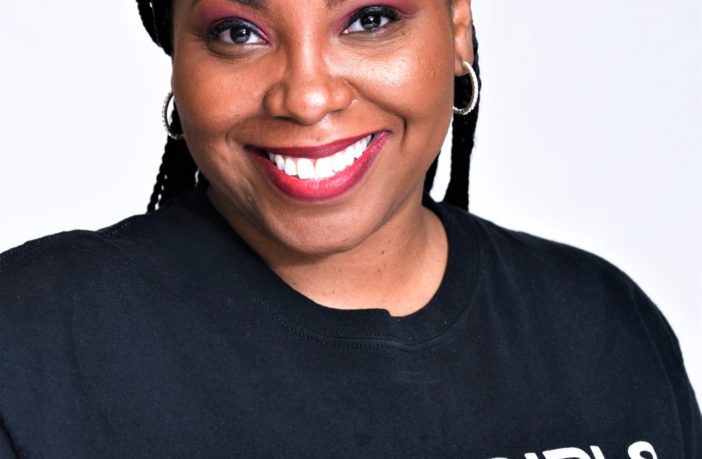Since the inception of the film industry, Black people, especially Black women, have worked tirelessly to be holistically seen. In her book Sister Citizen, scholar and media veteran Melissa Harris Perry calls this jagged viewpoint the “crooked room.”
In an effort to intentionally shift the skewed narratives and stereotypes, Dr. Jimmeka Anderson began the Black Girls Film Camp. In only a few short years, the program has brought together Black girls from across the country to analyze mediums of film, listen to major leaders in the field and craft their own bodies of work to be presented widely. This labor of love was the literal manifestation of her research of Black girls and critical media literacy while obtaining PhD at the University of North Carolina, Charlotte in Curriculum and Instruction with a concentration in Urban Education.
Dr. Anderson spoke with EBONY about the impactful work of her film camp for girls in our community and how it encourages young Black girls to think about finding their own place in media and film.
EBONY: What was the inspiration behind creating Black Girls Film Camp and what makes it so unique?
Dr. Jimmeka Anderson: There is a need for Black girls to know how to tell their own stories; to see themselves as writers and storytellers; to learn how to build up their tech proficiency and become the ones that are operating the technology to create these digital stories.
From my research, I noticed various disparities with Black girls in literacy and technological proficiency. Additionally, I noticed the disparities behind the camera and through seeing the limited stereotypes, I also noticed the depth of the lack of representation with positive imagery. My daughter was 9-years-old at the time and loved Disney. I wanted her to see pieces of media that reflected her reality, which led to me to this vision to create a film camp for young Black girls.
Why is media literacy important, and how are these girls at the forefront of impacting this landscape?
When we talk about media literacy, it’s about having the skills to access, analyze, evaluate and create with media. So our curriculum involves those core components by giving the girls access to contribute to this media space and see positive representations where they see themselves. I consider myself a critical media literacy scholar, researcher and educator, because we look at the connections with power and media and how they have been used historically. We utilize that lens from an analytical standpoint to look at the disparities in the content. Who’s represented in certain pieces of imagery? How do those representations look? Are they limited? This thinking allows us to then evaluate how our community has been positioned and the impact this has on an individual and collective level.
Through the curriculum and the scholars that we have present, it is an opportunity to utilize storytelling as a vehicle to open up more discourse and dialogue about these topics and Black girls. And their films have been conversational pieces that have served as a method of action.
What have past participants of the camp gone on to do?
A lot of the girls in the program are between the ages of 13 to 18. For those that are applying to colleges and film school, we’ve had many use the films that they’ve created in this program for their film submission. Just this past year, two of our seniors applied to NYU’s Tisch film school, they submitted their films and got accepted. Another one of our girls used her film for application to USC’s film school—she just found out last Friday that she was accepted into the school’s program. Hence, the films that they’re creating at Black Girls Film Camp are also assets that leverage their opportunities as they’re pursuing higher education while creating opportunities for them to get access as well. It does my heart good to know that they’re utilizing what they’re creating in this program to open doors for them to actually become filmmakers and go to film school.



